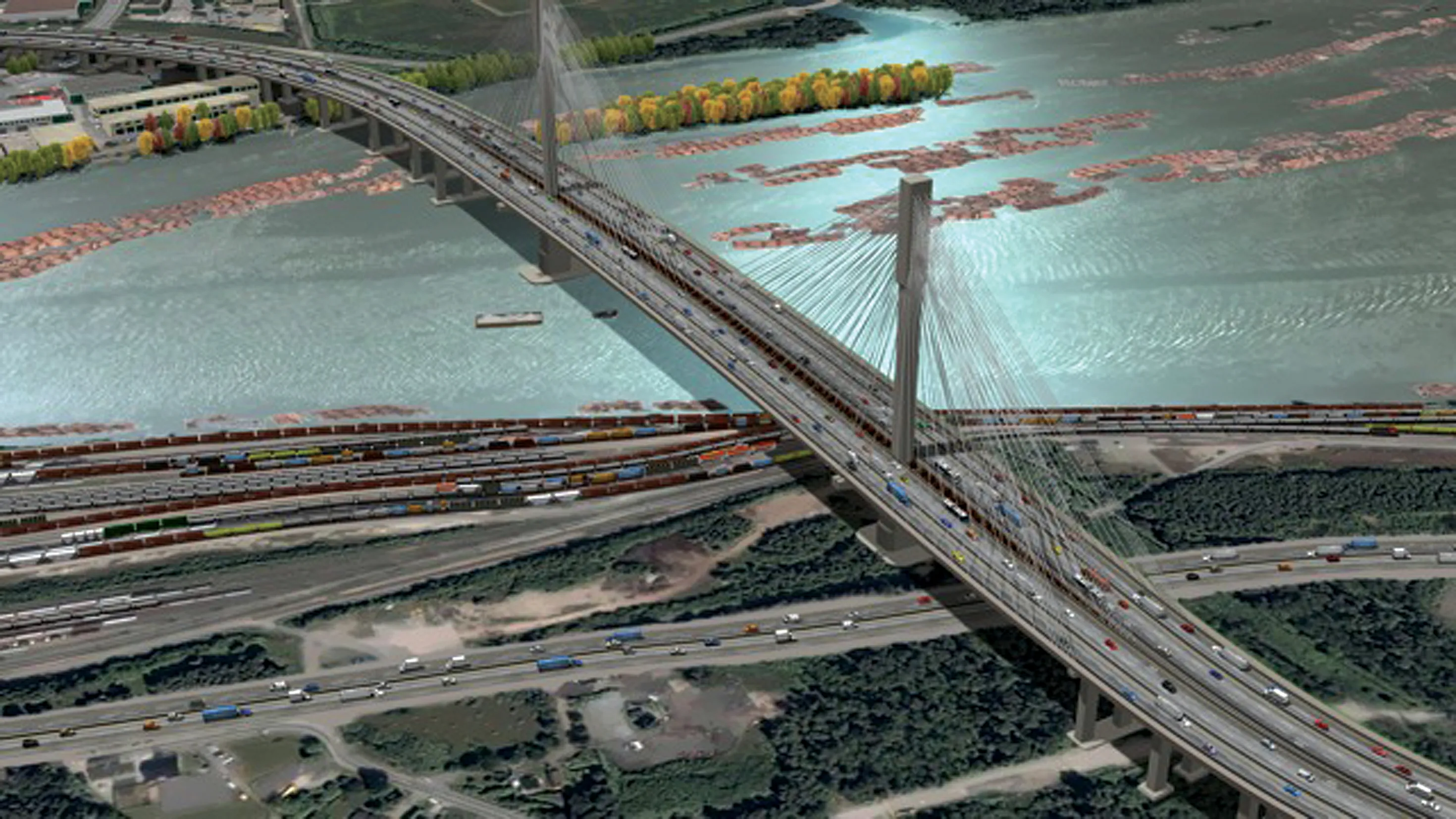A consortium composed of Egis Projects and Sanef has signed a contract for the operation of the Port Mann Bridge open road tolling (ORT) project in the Metro Vancouver Area, Canada. The largest transportation infrastructure project in British Columbia history, it includes doubling the capacity of the bridge and widening the highway from Vancouver to Langley, a distance of 37km. Once complete, it will reduce travel times by up to 30%, and save drivers up to an hour a day. The new bridge will also provide for
April 4, 2012
Read time: 2 mins

A consortium composed of 2376 EGIS Projects and 4757 Sanef has signed a contract for the operation of the Port Mann Bridge open road tolling (ORT) project in the Metro Vancouver Area, Canada. The largest transportation infrastructure project in British Columbia history, it includes doubling the capacity of the bridge and widening the highway from Vancouver to Langley, a distance of 37km. Once complete, it will reduce travel times by up to 30%, and save drivers up to an hour a day. The new bridge will also provide for a Highway 1 Rapid Bus service.
The Port Mann / Highway 1 improvement project includes the construction of a new ten-lane bridge which will be equipped with an all electronic tolling (AET) system. Since 2009, Egis Projects and Sanef, within the V-Flow consortium, have operated the Golden Ears Bridge, with a similar AET system, on behalf of3100 TransLink, the Metro Vancouver regional transportation organisation.
Egis Projects and Sanef are equal shareholders of the Trans-Canada Flow Tolling consortium which won the ORT service contract, against eight other bidders, from Transportation Investment Corporation, the public concessionaire of the Port Mann Bridge. The AET system is planned to be operational from December 2012 and more than 130,000 vehicles/day are expected to cross the Port Mann Bridge.
The Port Mann / Highway 1 improvement project includes the construction of a new ten-lane bridge which will be equipped with an all electronic tolling (AET) system. Since 2009, Egis Projects and Sanef, within the V-Flow consortium, have operated the Golden Ears Bridge, with a similar AET system, on behalf of
Egis Projects and Sanef are equal shareholders of the Trans-Canada Flow Tolling consortium which won the ORT service contract, against eight other bidders, from Transportation Investment Corporation, the public concessionaire of the Port Mann Bridge. The AET system is planned to be operational from December 2012 and more than 130,000 vehicles/day are expected to cross the Port Mann Bridge.






